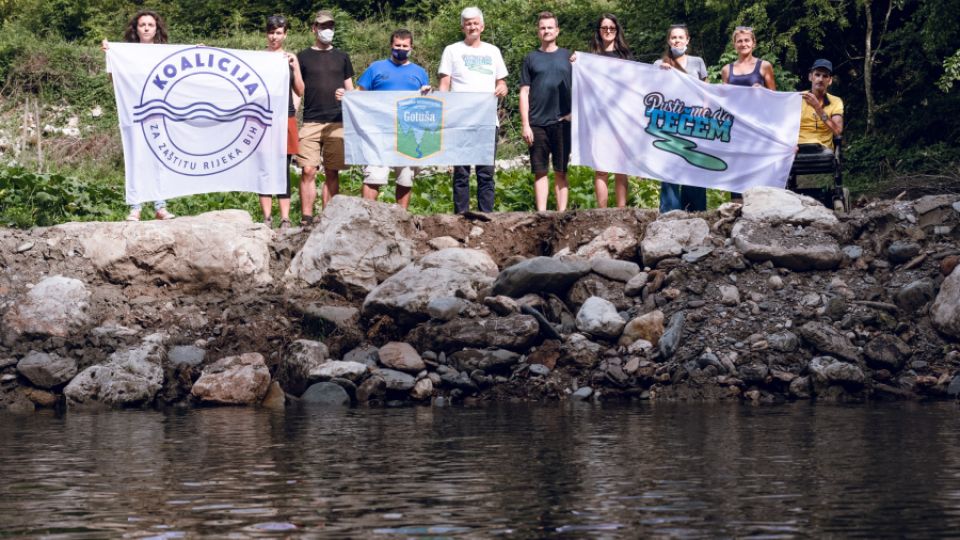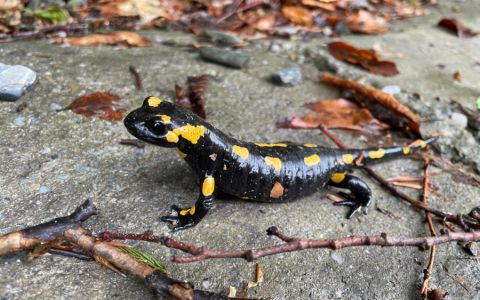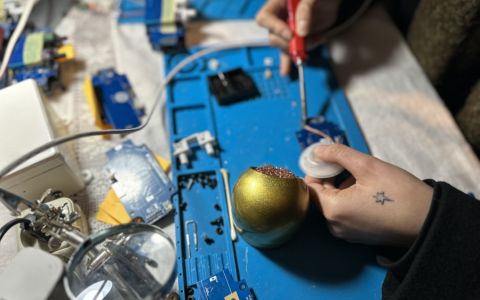SARAJEVO/PRAGUE - People of Bosnia and Herzegovina have won a significant victory in the fight to protect their rivers. The state-owned energy company Elektroprivreda [1] announced the end of plans to build fifteen small hydropower plants (HPPs) on the Neretvica River. The decision came after three years of civil protests and campaigns by local NGOs. Their struggle was backed up by the Coalition for Protection of the Rivers of Bosnia and Herzegovina [2], a network established with the goal of stopping the dangerous hydropower boom in BiH.
From the beginning, the controversial plan to divide the river for energy production raised concerns among local residents. “The pressure to build hydropower plants has been enormous in Bosnia and Herzegovina over the last ten years. They are the last wild and unregulated rivers in Europe and are the target of many investors who see an easy profit. However, local citizens have begun to rebel against these plans in a big way. The small hydropower projects that have already been constructed show that the impact on watercourses is devastating. In practice, inappropriate technology and weak environmental protection laws lead to kilometers of dry riverbeds. This is devastating not only for nature but also for local people - you simply cannot use a dry river in any way,” explains Zuzana Vachůnová, a campaigner from the Czech NGO Arnika that has been a member of the BiH river coalition since its beginning.
Locals from the villages around the Neretvica river started to organize themselves in 2020 when they also founded a civic association, “Pusti ma da tečem!” (Let me flow!). With slogans such as “Water or blood” or “We are not for sale!” they tirelessly fought against the planned projects by organizing protests and blockades [3], advocating for river protection on local and national levels and by legal means. Thanks to submitted lawsuits, the courts canceled environmental and construction permits for two projects whose permits were already issued. The state-owned company Elektropriveda eventually backed away from its original plan thanks to concerted public pressure.
Since 2014, when Arnika [5] started working in Bosnia and Herzegovina, local communities have managed to stop several projects that threatened to devastate rivers. The most famous case is the story of the village of Kruščica, where local environmentalist Maida Bilal won the Goldman Environmental Prize in 2021 [4]. Twenty-two towns and villages, including the second largest town of Banja Luka, joined the initiative of the Municipality without Dams. The people of Bosnia and Herzegovina have fought for years for their rights to living rivers. They believe that rivers are for people, not for profit. The breakthrough came in July last year when the Parliament of the Federation of Bosnia and Herzegovina banned further construction of small hydropower plants [6]. The law change regards only the projects where no permitting process was started yet, and it is only valid in part of the country [7]. Yet it shows that political will is changing, and politicians can no longer ignore the concerned citizens. The projects planned on the Neretvica river were those that were not affected by the law change. The story of the victory on the Neretvica River inspires and encourages other communities all along Bosnia and Herzegovina that strive to stop hydropower projects.

Notes:
[1] Bosnian energy company, majority owned by the state. More about the company HERE.
[2] A platform bringing together 30 civic initiatives and dozens of individuals from Bosnia and Herzegovina. The Czech NGO Arnika is also a founding member and initiated the creation of this platform.
[3] The protests and rallies brough together routinely hundreds of people.
[4] You can read Maida Bilal’ą story HERE. Bilal and other women led a 503-day blockade that ultimately prevented the construction of two small hydroelectric power plants on the Kruščica River.
[5] You can read more about the project and Arnika’s former activities in the country HERE.
[6] You can read more about it HERE.
[7] Bosnia and Herzegovina is formed of two constitutional “entities” established on ethnic principles – the Republika Srpska (a Serbian entity) and the Federation of Bosnia and Herzegovina (a Bosniak-Croat entity). The central government ties both of them together in a fragile state. A vote of the Parliament of the Federation of Bosnia and Herzegovina is binding only for the state authorities in the respective entity of the country.







